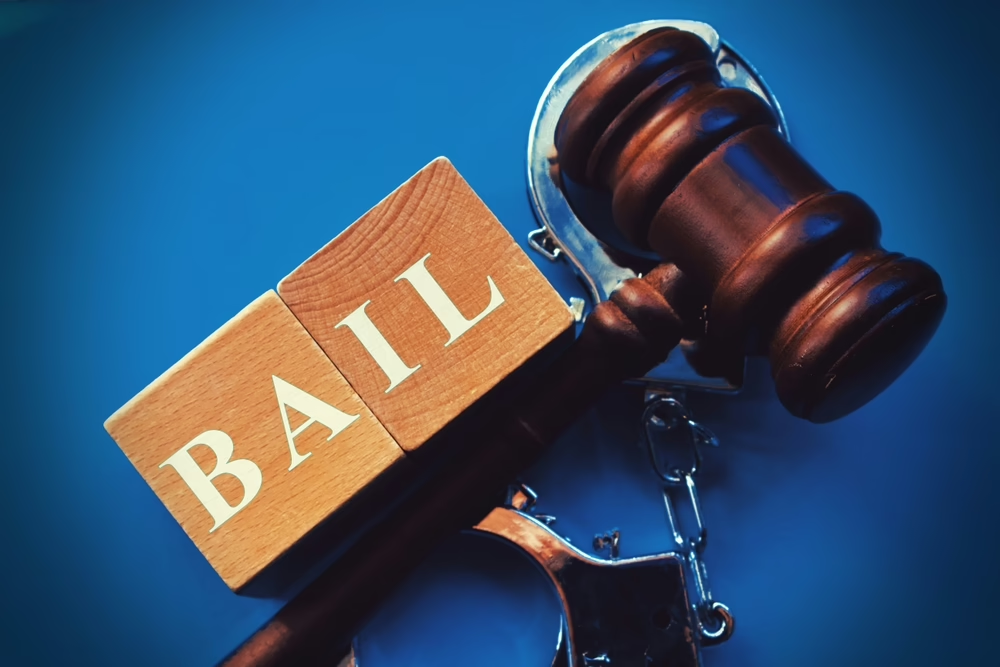Co-signing on a bail bond is a serious responsibility and should not be taken lightly. If you are considering co-signing for someone who has been arrested, it is important to understand what this entails and the potential consequences of your actions. In this blog, we will discuss the basics of co-signing on a bail bond, what it means to co-sign, and what requirements are typically needed from the co-signer.
Co-signing on a bail bond is a serious responsibility and should not be taken lightly. If you are considering co-signing for someone who has been arrested, it is important to understand what this entails and the potential consequences of your actions. In this blog, we will discuss the basics of co-signing on a bail bond, what it means to co-sign, and what requirements are typically needed from the co-signer.
What Is A Bail Bond?
A bail bond is a financial guarantee that the defendant will appear in court when required. When someone is arrested, they are usually taken to jail and must wait there until they can see a judge. The judge will then set a bail amount that the defendant must pay in order to be released from jail while they await their court date. The bail amount is set to ensure that the defendant will return to court when required.
If the defendant cannot pay the bail amount themselves, they can turn to a bail bondsman for help. The bail bondsman will provide the bail amount in exchange for a fee, usually 10% of the total bail amount, and a co-signer. The co-signer is responsible for ensuring that the defendant returns to court when required, and if they do not, the co-signer is responsible for paying the full bail amount.
What Does It Mean To Cosign On A Bail Bond?
When you co-sign on a bail bond, you are agreeing to take on a significant amount of financial responsibility. The co-signer is responsible for ensuring that the defendant returns to court when required, and if they do not, the co-signer is responsible for paying the full bail amount. This means that if the defendant fails to appear in court, the co-signer must pay the full bail amount to the bail bondsman. This can be a significant financial burden, especially if the bail amount is high. Note this is if the bail bondsman cannot apprehend the defendant. If a bounty hunter is able to locate the defendant, the co-signer would be responsible for the bounty hunting fees rather than the full bail amount.
Additionally, the co-signer may also be required to help locate the defendant if they fail to appear in court. This can be a time-consuming and stressful process, and the co-signer may also be held legally responsible if the defendant is not located and brought back to court.
Requirements For Co-Signing On A Bail Bond
The requirements for co-signing on a bail bond vary from state to state, but there are some general requirements that are typically needed. The co-signer must be a U.S. citizen and usually over the age of 25. They must also have a stable job or be a homeowner.
In most cases, the co-signer must have been employed full-time for a few years at the same job and be able to provide pay stubs to show their income. This is to ensure that the co-signer has the financial means to pay the full bail amount if necessary. If the cosigner is a homeowner, they must provide proof of ownership and the value of their home or this can be looked up by the bail bond company through public records.
Why Co-Signing On A Bail Bond Can Be A Good Option In Dayton
Co-signing on a bail bond can be a good option for those who want to help someone they care about get out of jail quickly. If the defendant is unable to pay the bail amount themselves, co-signing on a bail bond can be a quick and efficient way to get them released from jail. The defendant will be able to return home, get back to work, and start preparing for their court case, which can be beneficial for their mental and emotional well-being.
In addition, co-signing on a bail bond can be a way to show support for someone who is going through a difficult time. By co-signing, you are sending a message that you believe in the defendant’s innocence and that you are willing to stand by them and help them through the legal process.
Risks Of Co-Signing On A Bail Bond
While co-signing on a bail bond can be a good option for some, it is important to understand that there are also risks involved. As mentioned earlier, if the defendant fails to appear in court, the co-signer is responsible for paying the full bail amount if the defendant cannot be apprehended. This can be a significant financial burden, especially if the bail amount is high.
Additionally, the co-signer may also be required to help locate the defendant if they fail to appear in court. This can be a time-consuming and stressful process, and the co-signer may also be held legally responsible if the defendant is not located and brought back to court.
Final thoughts
Co-signing on a bail bond is a serious responsibility and should not be taken lightly. Before making a decision, it is important to understand what this entails and the potential consequences of your actions. If you are considering co-signing for someone who has been arrested, it is important to talk to a professional bail bondsman, such as Craven Bail Bonds, to discuss your options and make an informed decision.
In conclusion, co-signing on a bail bond can be a good option for those who want to help someone they care about get out of jail quickly, but it is important to understand the risks involved and make an informed decision. If you have any questions or need assistance with a bail bond, contact Craven Bail Bonds for professional and reliable service.
Need to get in touch with us at Craven Bail Bonds? Call us today!





